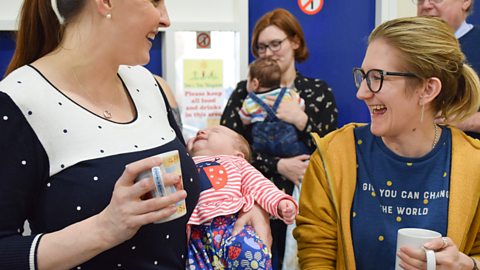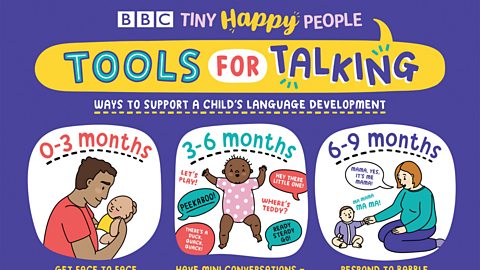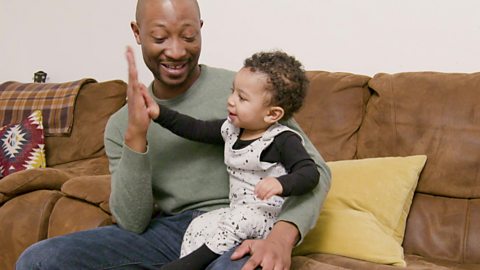ΒιΆΉΤΌΕΔ Tiny Happy People is an initiative aimed at improving the speech, language and communication (SLC) skills of 0β4-year-old children across the UK.
We help parents and carers truly believe that they are the most important person in their childβs life. They can use our resources to do simple, easy to follow activities with their child, knowing that those activities are rooted in science and shown to have a positive impact on SLC development. Our message is simple:
βTalk to your baby from as early as possible. Weβre here to show you how and why itβs so important.β
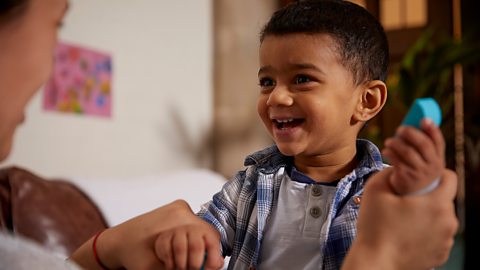
Science at the heart
Since the start of developing ΒιΆΉΤΌΕΔ Tiny Happy People in 2018, we have worked hand-in-glove with leading academic institutions, partner organisations and healthcare professionals to create resources that help parents better communicate and interact with their 0-4-year-olds and develop their SLC skills.
We also support frontline professionals such as speech and language therapists, health visitors and early years specialists by providing the resources they need when they work with families in the field.
The Language Advisory Group
Back in 2018 we created a Language Advisory Group (LAG) who were, and still are, a panel of respected academics and frontline professionals, experts in the field of speech, language and communication (SLC) development. The LAG shapes our pedagogy and ensures that the latest science is incorporated into our resources. By collaborating with the LAG we create content that can be trusted, and we are proud to be endorsed by a number of professional organisations who recognise that.
Below are some of the key members of the LAG:
Professor Danielle Matthews, University of Sheffield
Danielle Matthews is Professor of Psychology at the . She researches how children learn to talk. Her aim is to understand the mechanisms of language learning and to develop evidence-based support for families and professionals.
This involves running observational studies and randomised controlled trials to understand how different experiences of interaction affect learning. Her main focus is on pre-linguistic communication, the transition to word use, and pragmatic development - learning to use language for social communication.
Professor Julian Pine, University of Liverpool and LuCiD
Julian Pine is Professor of Developmental Psychology at the and the Director of the .
He has been conducting research on childrenβs language development for over 30 years and has published extensively on how children learn to talk both in English and a variety of other languages, including Dutch, Finnish, French, German, Polish and Spanish. His research focuses on how children learn words, how they learn to combine words into sentences, and how caregivers can support their childrenβs early language learning.
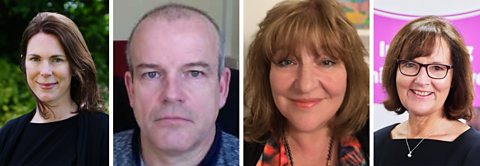
Michelle Morris MBE, Greater Manchester Combined Authority
Michelle is the Clinical Lead for Speech, Language and Communication Needs (SLCN) for and .
Having completed a Masters in Applied Public Health, Michelleβs area of special interest and expertise is the relationship between speech, language and communication and childrenβs life chances at a population level.
She spent six years as a speech and language therapy advisor to the Department of Health and continues to contribute to childrenβs health education and public health policy development at a regional and national level, acting as a specialist advisor for the Royal College of Speech & Language Therapists and an associate for the Early Intervention Foundation.
Alison Morton, Institute of Health Visiting
Alison Morton is CEO of the , having previously acted as Director of Policy and Quality, delivering βHealth Visiting in England: A Vision for the Futureβ, IHVβs evidence-based blueprint to rebuild health visiting services.
Alison has an extensive background in health visiting, having held senior roles across national policy, 0-19 public health operational delivery and quality improvement, alongside teaching and research. In her previous roles, Alison worked as a Professional Advisor for Health Visiting in the Chief Nursing Directorate at the Department of Health from 2014 and then as the Best Start in Life Programme Manager at Public Health England (PHE).
Alison is also an honorary lecturer at the Institute of Child Health at UCL and her work has been recognised through numerous national awards.
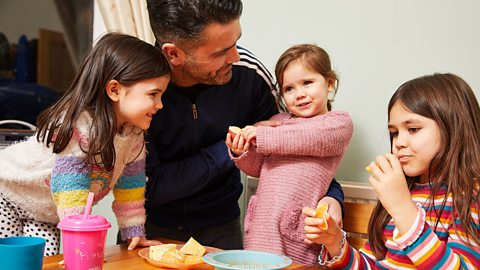
Evaluating Tiny Happy Peopleβs impact
Study 1
September 2023 saw the conclusion of an independent two-year evaluation of ΒιΆΉΤΌΕΔ Tiny Happy People, where the effect of regular use of the resources through text message prompting was tested under controlled conditions. The study was run by, and from, the and involved academics from the Universities of , and . Involving 435 families across the UK, it was the biggest study of its kind in this area anywhere in the world.
The study involved parents of children aged four months to 24 months in one group being sent Tiny Happy People videos every 10 days, while another group were sent videos on childrenβs physical health from other sources (e.g. NHS). Parents were then invited to complete surveys on their childrenβs development and to provide a home video of play.
Some of the key outcomes of the study were as follows:
Infants were better able to communicate at 12 months if parents were regularly sent ΒιΆΉΤΌΕΔ Tiny Happy People material
Parents were better able to use strategies known to help childrenβs language development when regularly sent ΒιΆΉΤΌΕΔ Tiny Happy People material
91% of parents in the study said theyβd recommend the service to a friend
Parents said ΒιΆΉΤΌΕΔ Tiny Happy People provided reassurance and helped build their confidence
Study 2 and Study 3
Off the back of the results of Study 1, and based on parentsβ feedback, the University of Sheffield expanded the text message service, in collaboration with . It now offers parents who have children at a higher risk of language delay the option of video-calls with a Speech and Language Therapists who can interpret and adapt the ΒιΆΉΤΌΕΔ Tiny Happy People content for their child.
Two new evaluations are testing this improved smartphone-based service for parents of infants and toddlers. In another expansion, the University of Sheffield are working with , an innovation agency for social good, on improving the design of the text service and embedding it into existing local services and the ΒιΆΉΤΌΕΔ Tiny Happy People website. Evaluation will reveal how we can best deliver ΒιΆΉΤΌΕΔ Tiny Happy People to lead to maximum positive impact. We will publish updates here as each stage is concluded.
Behaviour change theory
ΒιΆΉΤΌΕΔ Tiny Happy People is a behaviour change initiative. You can read about the COM-B model here.

